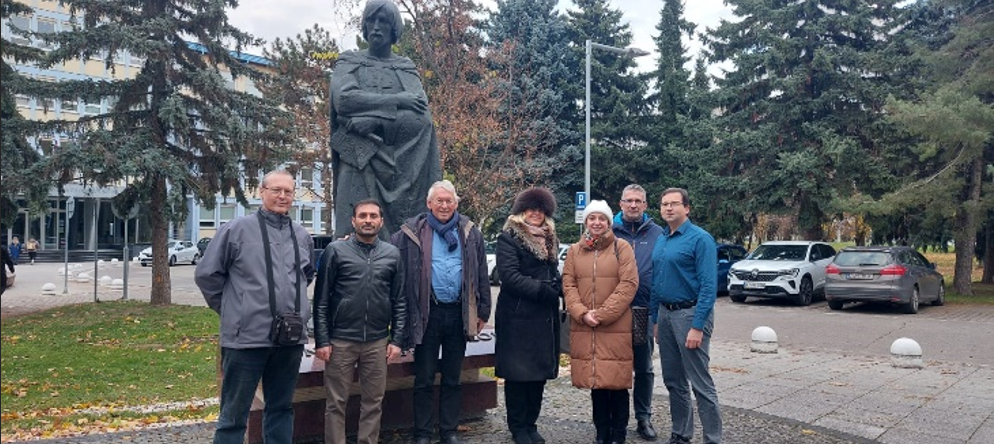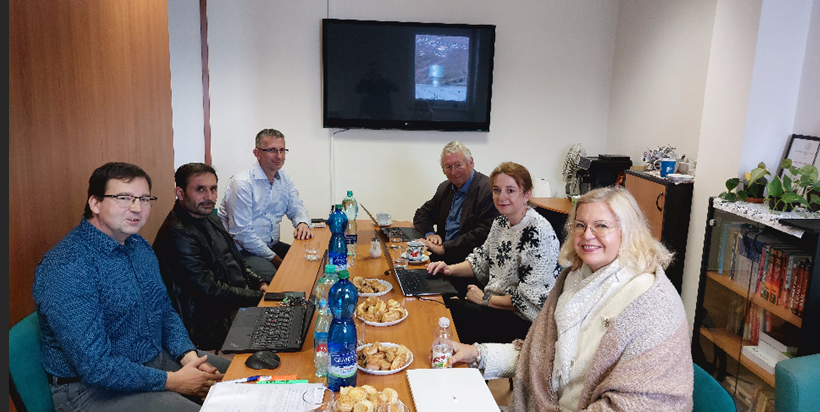The kickoff meeting for the FITPED-GAI: Future IT Professionals Education in Generative Artificial Intelligence project took place on November 21–22, 2024, at Constantine the Philosopher University in Nitra, Slovakia. The meeting brought together consortium members to define project objectives, outline activities, and establish a clear path forward.
The meeting began with an overview of the project’s goals and structure, emphasizing the development of an innovative educational model. This model integrates generative artificial intelligence into learning and teaching processes for students, educators, and future professionals, addressing the growing demand for AI expertise across industries.
The morning sessions started with a presentation of the project’s objectives and an introduction to its structure. This was followed by a discussion on Work Package 1, which focuses on effective project management to ensure the successful coordination and timely delivery of outputs.
Later, the team delved into Work Package 2, which targets non-IT university students and employees. This work package aims to create accessible introductory courses on artificial intelligence, tailored to diverse academic specializations. These courses will provide foundational AI knowledge while enhancing digital skills without overwhelming participants with technical complexity.
After a lunch break, the discussion shifted to Work Package 3, the most significant component of the project. This work package focuses on the development of generative AI courses for students and teachers. The courses will address critical thinking, ethical considerations, and practical applications of GAI in various fields. Plans for integrating GAI into university policies and disseminating project outcomes through publications and events were also outlined.
The day concluded with a dinner that facilitated informal discussions and networking among participants, fostering collaboration and idea exchange.
The second day began with a session on Work Package 4, which explores the use of GAI in programming education. The focus is on designing courses for beginners and advanced students, helping them overcome challenges in learning programming. The courses aim to reduce dropout rates, enhance learning efficiency, and support teachers in integrating GAI into their programming classes.
This was followed by a discussion on Work Package 5, which examines the technological foundations of GAI and the development of software modules for the project’s courses. The session also highlighted plans to create manuals and tutorials for the Priscilla educational system, ensuring that teachers and students can effectively utilize GAI features in their learning environments.
The meeting concluded with an open discussion, allowing participants to share feedback, address any concerns, and align on strategies for project implementation.


